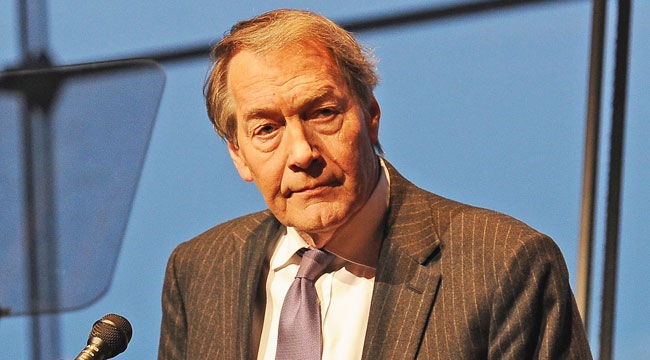
On Tuesday, CBS News announced it had fired veteran broadcaster Charlie Rose following accusations of sexual misconduct from at least eight women. According to an internal memo sent to the New York Times, his employment with the major news agency has been “terminated … effective immediately” the day after a Washington Post report detailed the “unwanted sexual advances” allegedly made by the PBS talk show host over the years. Rose subsequently apologized for his actions but downplayed their significance in a brief videotaped exchange published by TMZ.
Per John Koblin of the NY Times, the memo by CBS News President David Rhodes reads as follows:
Despite Charlie’s important journalistic contribution to our news division, there is absolutely nothing more important, in this or in any organization, than ensuring a safe, professional workspace — a supportive environment where people feel they can do their best work. We need to be such a place.
I’ve often heard that things used to be different. And no one may be able to correct the past. But what may once have been accepted should no ever have been acceptable.
CBS News has reported on extraordinary revelations at other media companies this year and last. Our credibility in that reporting requires credibility managing basic standards of behavior. That is why we have taken these actions.
You can read Rhodes’s full memo to CBS News staffers announcing Rose’s firing below.
BREAK: CBS has fired Charlie Rose. Memo that just went out to CBS News staffers pic.twitter.com/Db9NpKDv2l
— John Koblin (@koblin) November 21, 2017
UPDATE: Not long after CBS News formally terminated Rose’s contract, PBS announced it would be doing the same. “In light of yesterday’s revelations,” read a statement tweeted out by Koblin, “PBS has terminated its relationship with Charlie Rose and cancelled distribution of his programs.”
More: "PBS expects all the producers we work with to provide a workplace where people feel safe and are treated with dignity and respect."
— John Koblin (@koblin) November 21, 2017
(Via New York Times)
